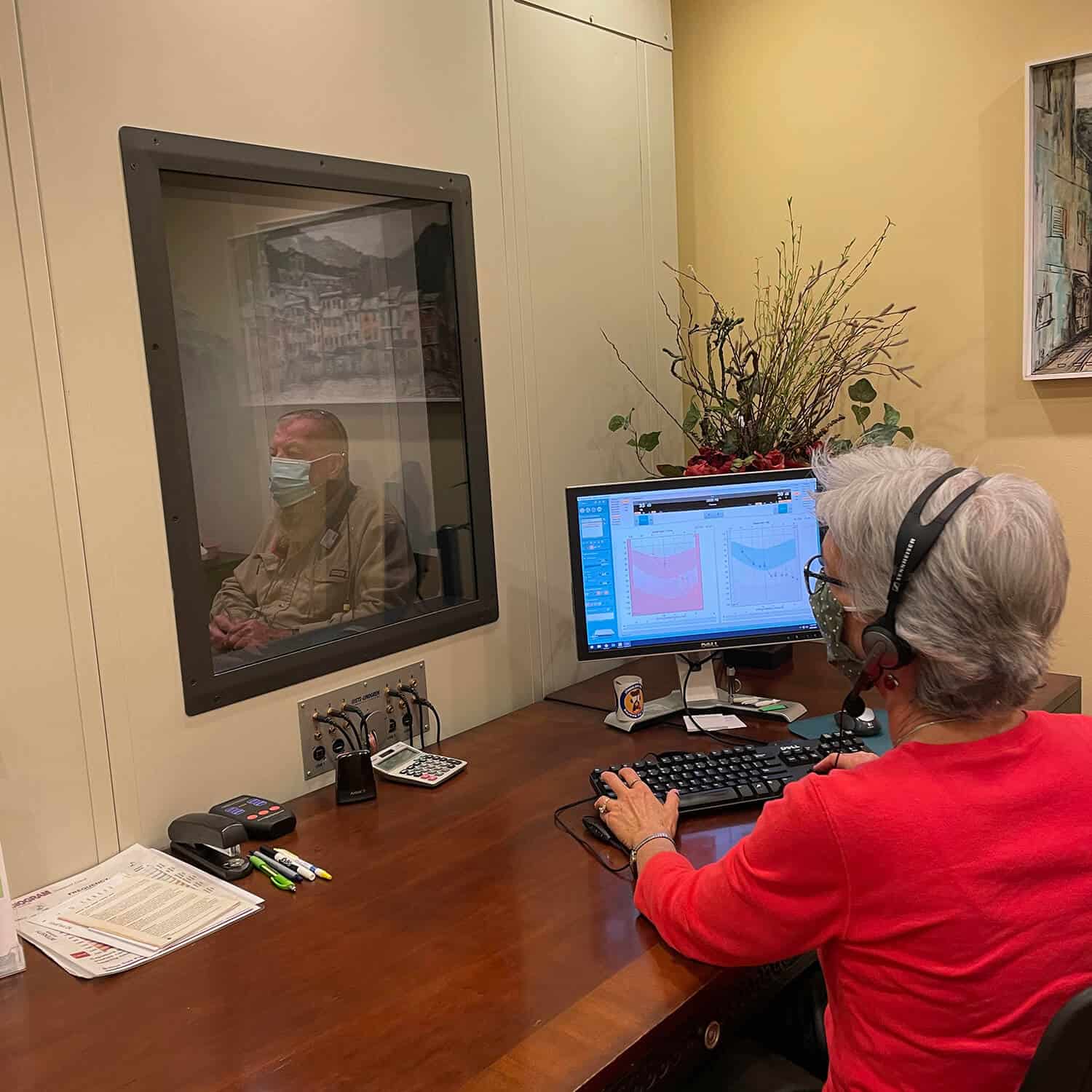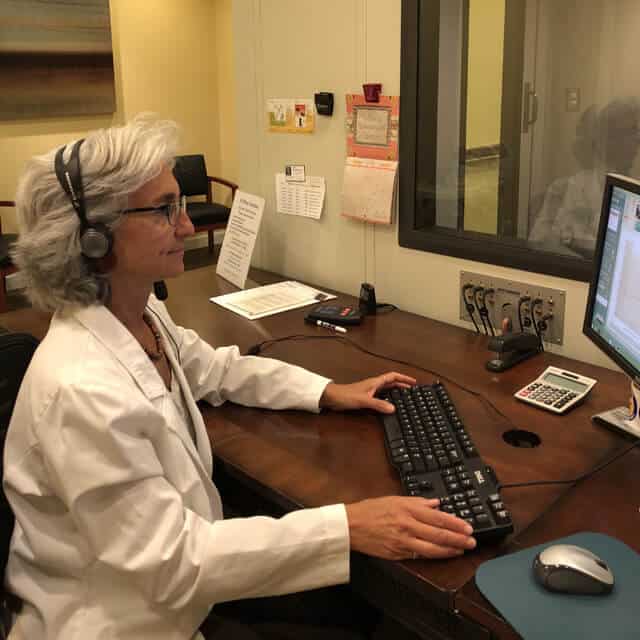Hearing Loss Overview
In the United States, approximately 15% of the U.S. adult population experiences some degree of hearing difficulty, but only 16% of those individuals have done something to improve their hearing ability. Changes in hearing are invisible and often develop gradually over a number of years of living a rich and wonderful life. As such, many people who may benefit from hearing solutions do not often seek treatment.
Here at Hearing Solutions of North Carolina, we are committed to raising awareness around hearing challenges and also focusing on the life-changing benefits that come from hearing solutions. We believe that hearing loss is manageable and a common concern, and we aim to provide the best care following a patient-care center approach. When it comes to caring for your hearing, you can trust us to provide the wellness information you need and the personal touch you deserve.
Understanding Hearing Loss

Hearing challenges occur when the ability to hear is diminished, making it difficult to understand certain speech sounds or sounds in your environment. Note that we use the word 'understand' and not 'hear' - most people can still hear other people talk; it’s just that they often find it hard to understand what is being said.
Hearing loss is not the same for each individual. There is a certain type of hearing loss that can be identified through a hearing test.
The most common type of hearing loss we encounter is sensorineural hearing loss. It is caused by damage to the hair cells inside the inner ear or nerve damage to the hearing. Another kind of hearing loss is known as conductive hearing loss. This occurs when sounds are obstructed and do not move from your outer ear to your inner ear. Generally, individuals with this form of hearing loss report that noises are dampened. A mixed hearing loss is a combination of a conductive hearing loss and sensorineural hearing loss.
Symptoms of Hearing Loss
Recognizing these signs can help you seek treatment sooner rather than later. Early detection and treatment ensures that you remain connected to the sounds of your life and the people you love. Here are a few common signs that your may have had a change in your hearing:
- Difficulties understanding what others are saying or mis-hearing what is said
- Thinking that others are mumbling and often ask people to repeat themselves
- Physical exhaustion after social events or gatherings
- Watching TV or listening to the radio at a higher volume
What is the most common reason for hearing loss?
There are two primary forms of sensorineural hearing loss:
Age-related: As people age, the hair cells in the inner ear that help transmit sound to the brain gradually wear out, leading to hearing loss. Often known as presbycusis, this type occurs naturally affecting high frequency sounds and occurs in both ears. It usually starts between 45 and 65 and can be affected by environmental factors such as prolonged exposure to noise or health factors such as diabetes and cardio-vascular disease.
Noise-induced: The most frequent cause of this preventable hearing loss is exposure to loud noise. It may result from either a one-off exposure to loud noise (such as a gunshot) or sustained exposure to a series of loud noises over many years (such as working in a loud environment).
Other common causes of hearing loss include genetic factors, ear infections, head injuries, medications that are toxic to the ears, and certain medical conditions such as diabetes, high blood pressure, and cardiovascular disease.
Hearing Loss and Tinnitus
Hearing loss and tinnitus are often related, as tinnitus can be a symptom of hearing loss.
Tinnitus is the perception of sound in the ears or head that is not coming from an external source. It can manifest as buzzing, ringing, hissing, or other sounds.
Tinnitus is often associated with hearing loss, as the same factors that cause hearing loss can also lead to tinnitus.
In the case of noise-induced hearing loss, exposure to loud noise can damage the hair cells in the inner ear, which can cause both hearing loss and tinnitus.
Similarly, age-related hearing loss can also be accompanied by tinnitus.
In some cases, tinnitus can also be caused by conditions such as ear infections, head injuries, and certain medications.
While there is no cure for tinnitus, there are treatments that can help manage the symptoms.
For example, hearing aids can improve hearing and reduce the perception of tinnitus by amplifying external sounds.
Sound therapy, which involves listening to low-level noise to help mask the tinnitus, can also be effective.
In some cases, cognitive-behavioral therapy (CBT) can help patients cope with the emotional distress that can accompany tinnitus.
It's important to consult a healthcare professional if you experience hearing loss or tinnitus, as the latter can be a symptom of an underlying condition that requires treatment.
Treatment for Hearing Loss

The treatment for hearing loss depends on the underlying cause and severity of the condition.
Here are some options for treatment:
Hearing Aids
Hearing aids are small electronic devices that amplify sound to improve hearing. They come in various styles and sizes and are programmed to match the individual's specific hearing needs.
Hearing aids offer the following features to improve your hearing ability:
- They amplify the frequencies or speech sound that are no longer in your hearing range improving understanding and communication.
- They make it easier to understand someone in a noisy place.
- They empower you and give you more confidence especially when you leave your home.
- They offer features to help to alleviate or reduce the annoyance of tinnitus.
Cochlear Implants
For severe or profound hearing loss, cochlear implants can be an option. These devices bypass damaged parts of the ear and directly stimulate the auditory nerve to provide sound signals to the brain.
Assistive Listening Devices
These devices can help people with hearing loss in specific situations, such as watching TV or talking on the phone. Examples include FM systems, captioning devices, and amplified telephones.
Medications
In some cases, hearing loss can be caused by an underlying medical condition or medication. Treating the underlying cause or changing medication can improve hearing.
Surgery
For some types of hearing loss, such as conductive hearing loss caused by damage to the middle ear, surgery may be an option to restore hearing.
If we determine that the degree of your hearing loss can be improved with medication or surgery, we will refer you to an otolaryngologist (ENT physician).
We are proud of our long-standing relationship with the medical community.
Let the experts handle your hearing loss
Hearing loss comes in many forms; you might have sudden sensorineural hearing loss, high frequency hearing loss, noise induced hearing loss, or congenital hearing loss. There are even cases where we handle tinnitus and hearing loss.
Each hearing loss is unique and we fully understand that, which is why we are committed to providing the best-personalized hearing solutions possible.
Contact us today if you believe you have had a change in your hearing.
We’re here to help you on your journey to better hearing.
